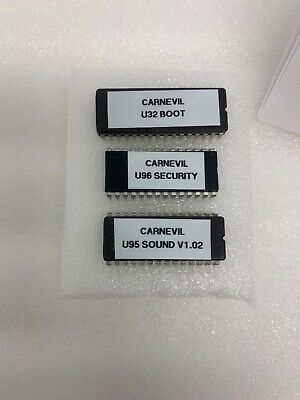Introduction to OpenSea and Neobanks
The world of finance is evolving rapidly, and technology is at the forefront of this transformation. Have you ever wondered if platforms like OpenSea could blend with banking services? As digital assets gain traction, many are asking: Is OpenSea a neobank? This question might seem far-fetched at first glance, but there’s more beneath the surface than meets the eye. In this article, we’ll dive deep into what makes OpenSea tick and explore how it compares to traditional banks and emerging neobanks in today’s financial landscape. Prepare for some surprising insights that just might change how you view both digital marketplaces and modern banking!
What is OpenSea a Neobank? An Overview
OpenSea is a leading marketplace for buying, selling, and trading non-fungible tokens (NFTs). Launched in 2017, it has quickly become the go-to platform for digital art collectors and gamers alike.
Users can explore an extensive range of digital assets, from virtual real estate to unique artwork. Each item on OpenSea is verified on the blockchain, ensuring authenticity and ownership.
Navigating through its user-friendly interface makes discovering new NFTs easy. Buyers can bid on items or purchase them outright using various cryptocurrencies.
The platform supports multiple blockchains, expanding access to diverse NFT collections. With millions of users worldwide, OpenSea continues to shape the future of digital ownership and creativity in ways that were once unimaginable.
Understanding the Concept of Is OpenSea a Neobank?
Neobanks represent a modern twist in the banking sector. Unlike traditional banks, they operate entirely online without physical branches. This digital-first approach allows them to streamline services and reduce overhead costs.
These platforms focus on user experience, offering intuitive interfaces that make banking enjoyable. Customers can manage their finances effortlessly through mobile apps.
Neobanks typically provide essential services such as savings and checking accounts, loans, and payment processing. They often boast lower fees than conventional banks due to their lack of brick-and-mortar infrastructure.
Security is also a priority for these fintech entities. Advanced encryption techniques keep customer data safe while ensuring smooth transactions.
By leveraging technology, neobanks cater specifically to tech-savvy consumers looking for convenience and flexibility in managing their money.
The Growth of Neobanks in the Financial Industry
Neobanks have rapidly gained traction in the financial industry, attracting millions of users worldwide. Their digital-first approach appeals to a tech-savvy generation seeking convenience and transparency.
These banks operate entirely online, eliminating traditional overhead costs associated with brick-and-mortar branches. This allows them to offer lower fees and more attractive interest rates on savings accounts.
Innovative features such as instant account setup and real-time transaction notifications enhance user experience. Many neobanks also provide budgeting tools that help customers manage their finances better.
As regulatory barriers lessen, more players enter the market, fostering competition. Traditional banks are now compelled to adapt or risk losing clientele.
The growth of neobanks is reshaping consumer expectations around banking services. With increasing investment backing these startups, they are poised for further expansion in an evolving financial landscape.
Features and Services Offered by OpenSea
OpenSea stands out with its diverse features tailored for NFT enthusiasts. Users can create, buy, and sell a vast array of digital assets. The platform supports various blockchain networks, primarily Ethereum and Polygon.
One notable service is the minting function that allows creators to turn their digital art into NFTs effortlessly. This democratizes access to the market, inviting artists from all backgrounds.
Additionally, OpenSea provides robust tools for browsing and categorizing items. Buyers can explore different collections or filter by price ranges, rarity levels, or new listings.
The user-friendly interface enhances the overall experience. Whether you’re a seasoned collector or just starting your journey in NFTs, navigating through the marketplace feels intuitive.
Community engagement is strong on this platform. Users often participate in discussions about trends or upcoming projects within forums linked to OpenSea’s ecosystem.
Comparison between OpenSea and Traditional Banks
OpenSea and traditional banks operate in vastly different realms. OpenSea focuses on the digital assets market, specifically NFTs, while conventional banks manage fiat currency transactions.
Traditional banks provide a plethora of services such as savings accounts, loans, and investment options. They are heavily regulated and come with insurance protections for deposits. Customers can access physical branches for face-to-face support.
In contrast, OpenSea offers an innovative platform where users buy, sell, and trade digital collectibles seamlessly. There’s no need to visit a branch; everything is done online through smart contracts on the blockchain.
Moreover, transaction fees on OpenSea differ significantly from bank charges. Users pay gas fees rather than maintenance or withdrawal fees common at traditional institutions.
The user experience also varies dramatically—one relies on established banking protocols while the other thrives in a decentralized environment catering to tech-savvy individuals looking for modern alternatives.
Benefits of Using OpenSea as a Neobank
Using OpenSea as a neobank presents unique advantages. For one, it offers users access to digital assets in an innovative way. This means you can store and trade cryptocurrencies alongside NFTs seamlessly.
OpenSea enables quick transactions without the red tape often found in traditional banking systems. Users appreciate the speed of transfers and trades, making it ideal for those looking to engage with their investments actively.
Additionally, there are lower fees involved compared to conventional banks. This cost-effectiveness allows users to maximize their returns on digital asset transactions.
Security is another key benefit. The platform employs blockchain technology that provides enhanced safeguards against fraud and theft.
OpenSea fosters a vibrant community of creators and collectors. Engaging with like-minded individuals enriches user experience while expanding opportunities for collaboration and networking within the growing digital economy.
Potential Risks and Challenges for Users
Using OpenSea comes with its own set of risks. One major concern is the volatile nature of digital assets. Prices can fluctuate wildly, leaving users vulnerable to significant financial losses.
Security is another pressing issue. While blockchain technology offers transparency, it does not guarantee immunity from hacks or scams. Users must be vigilant about protecting their wallets and private keys.
Regulatory challenges also loom large on platforms like OpenSea. As governments catch up with the crypto space, changes in regulation could affect how users transact or even access certain features.
Customer support can be lacking compared to traditional banks. With decentralized platforms, resolving issues may take longer and lack personalized assistance that many have come to expect from conventional banking services.
The Future of Platforms Like OpenSea
The landscape of digital finance is continually evolving, and platforms like OpenSea play a significant role in this transformation. As more users venture into the world of NFTs, the demand for innovative financial solutions will only grow.
OpenSea has already set a precedent by combining elements of trading with decentralized finance. This move attracts not just collectors but also those looking to invest in unique digital assets. The integration of cryptocurrency transactions provides an alternative to traditional banking methods, which may appeal to tech-savvy individuals seeking flexibility.
Looking ahead, we might see further developments where platforms similar to OpenSea expand their offerings beyond just NFT marketplaces. Features such as integrated wallets, lending services against NFTs, or even staking options could emerge as these platforms strive to provide comprehensive financial experiences.
With advancements in blockchain technology and increasing user adoption rates, the convergence between digital asset management and neobanking could lead us toward an era where conventional banking becomes less relevant for certain demographics. The shift towards decentralized models presents immense opportunities while posing challenges that need careful navigation.
As we embrace this new frontier of financial services through innovative platforms like OpenSea, understanding their potential impact on our economy is essential. The future looks promising yet uncertain; how it unfolds will depend largely on technological advancements and regulatory frameworks guiding these dynamic markets.


